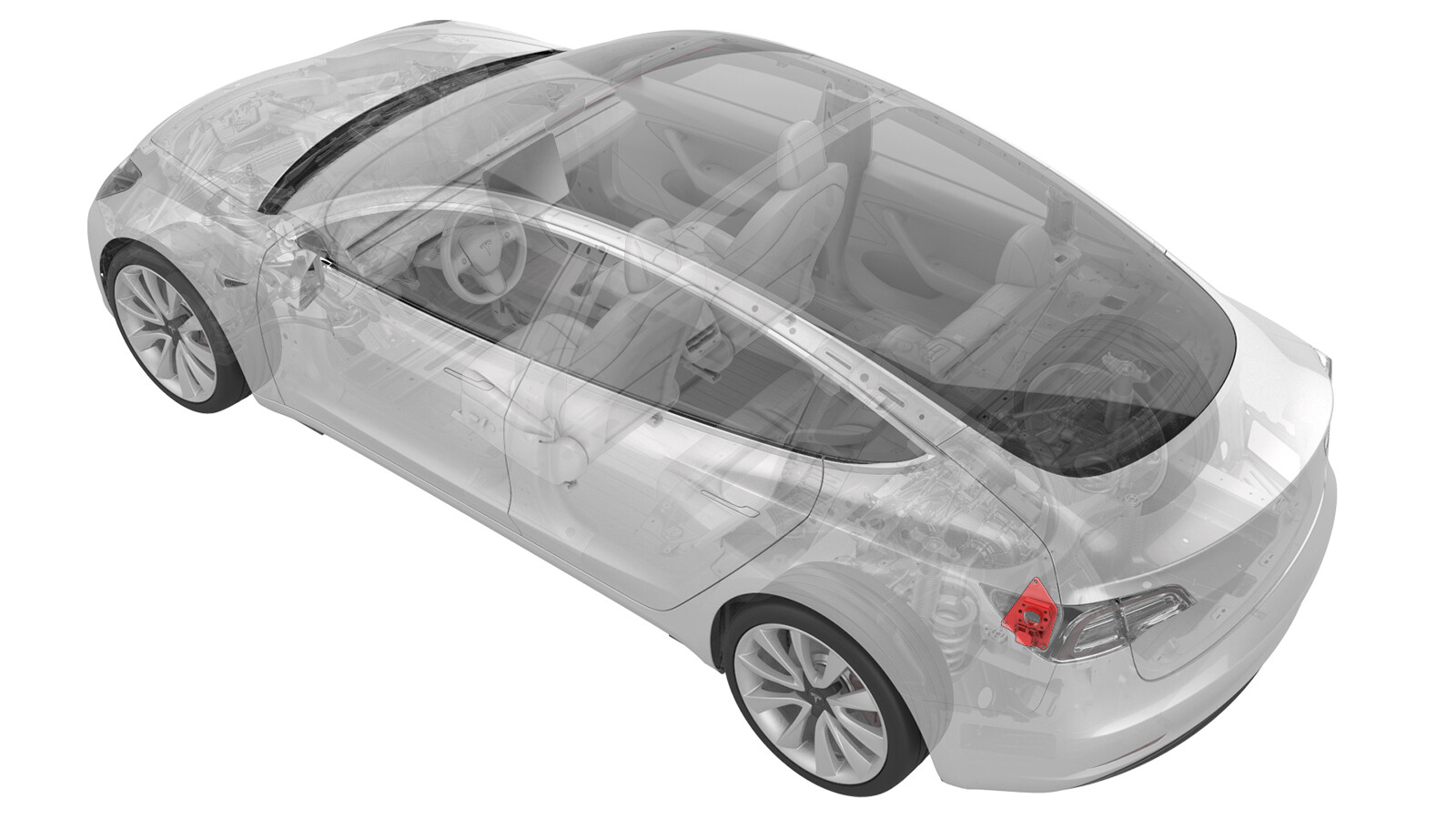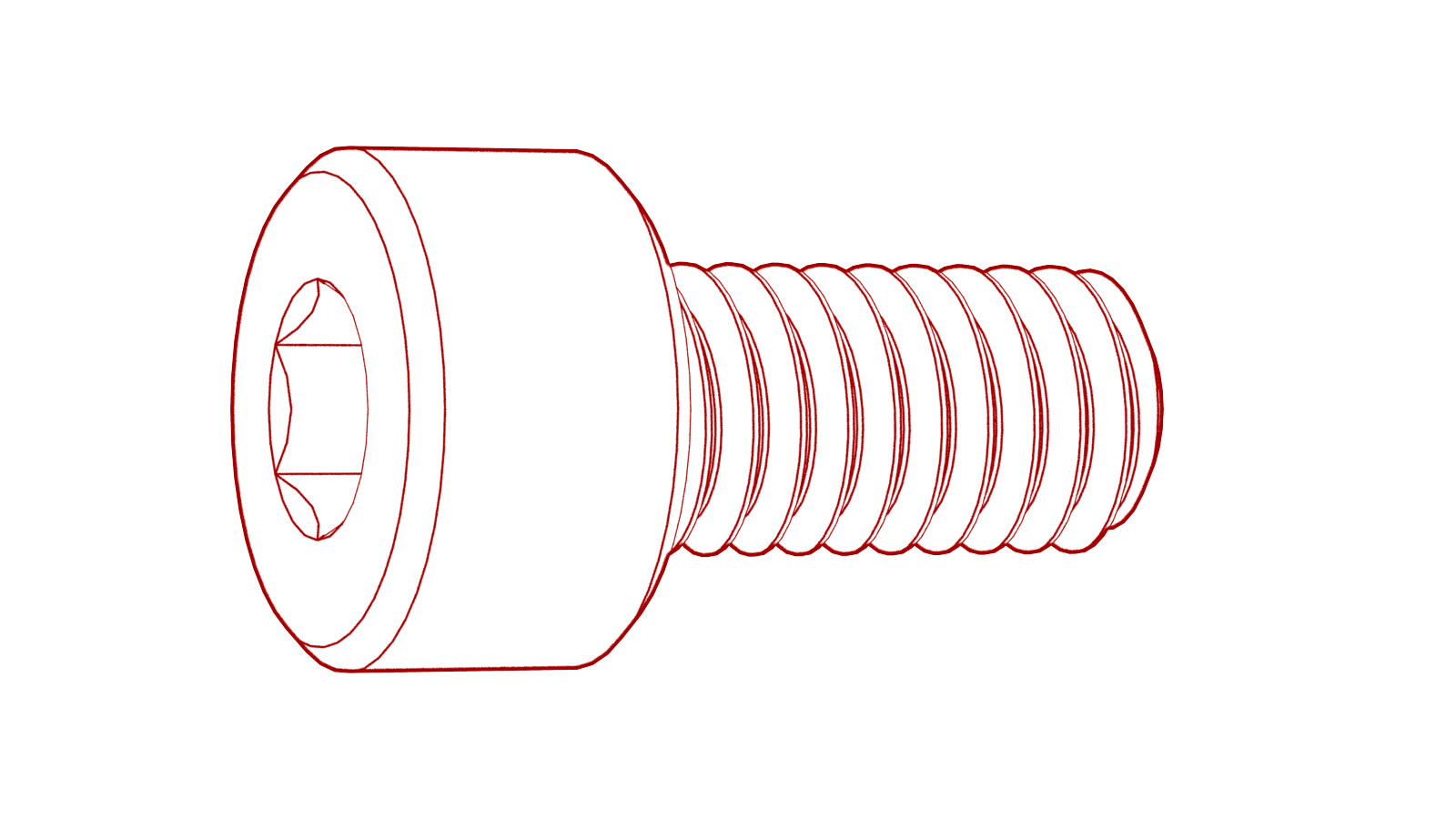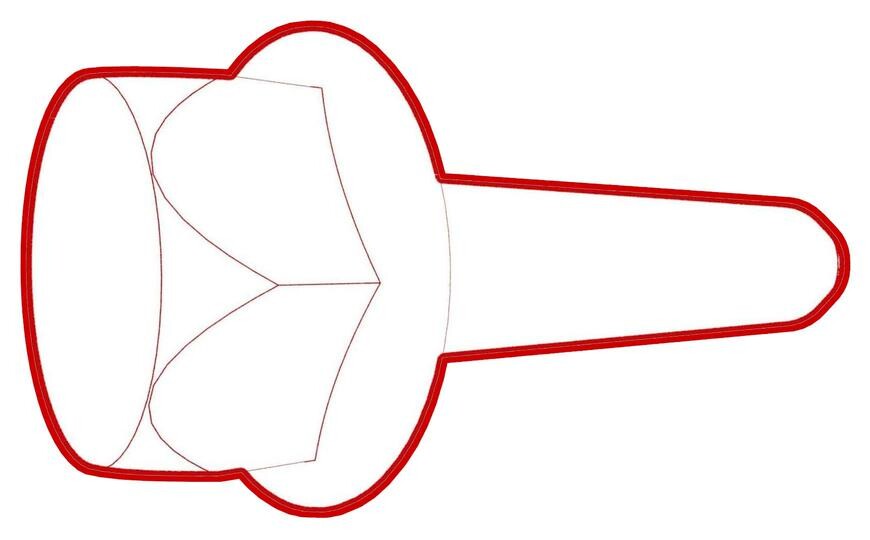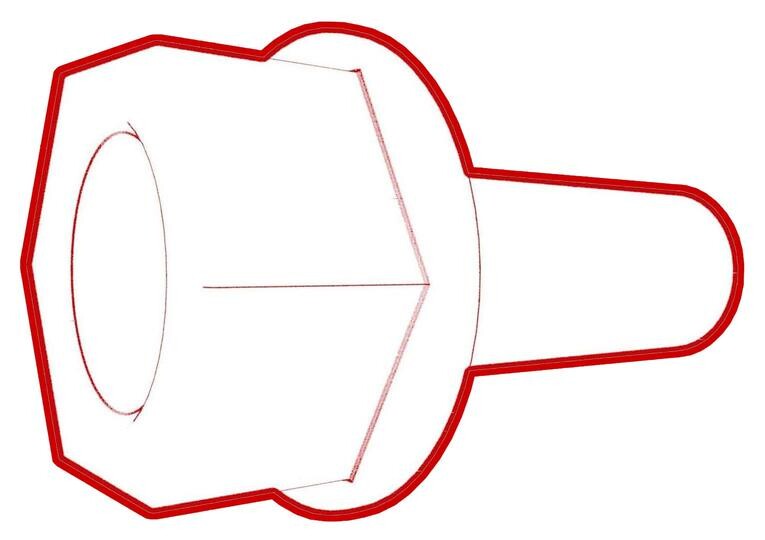Carrier Assembly - Charge Port (Remove and Replace)
 Correction code
44012102
0.78
NOTE: Unless otherwise explicitly
stated in the procedure, the above correction code and FRT reflect all of the work
required to perform this procedure, including the linked procedures. Do not stack correction codes unless
explicitly told to do so.
NOTE: See Flat Rate
Times to learn more about FRTs and how they are created. To provide feedback on
FRT values, email ServiceManualFeedback@tesla.com.
NOTE: See Personal Protection to make sure wearing proper PPE when
performing the below procedure. See Ergonomic Precautions for safe and healthy working practices.
Correction code
44012102
0.78
NOTE: Unless otherwise explicitly
stated in the procedure, the above correction code and FRT reflect all of the work
required to perform this procedure, including the linked procedures. Do not stack correction codes unless
explicitly told to do so.
NOTE: See Flat Rate
Times to learn more about FRTs and how they are created. To provide feedback on
FRT values, email ServiceManualFeedback@tesla.com.
NOTE: See Personal Protection to make sure wearing proper PPE when
performing the below procedure. See Ergonomic Precautions for safe and healthy working practices.
Equipment:
- 1076921-00-B Insulation Multimeter, Fluke 1507 (NA)
- 1076921-00-A Insulation Multimeter, Fluke 1587 (EMEA)
- 1076921-01-B Insulation Multimeter, Fluke 1508 (APAC)
- 1130480-00-A Test Probes, Slim, Fluke TP38
Only
technicians who have completed all required certification courses are permitted to
perform this procedure. Tesla recommends third party service provider technicians
undergo equivalent training before performing this procedure. For more information on
Tesla Technician requirements, or descriptions of the subject matter for third parties,
see HV Certification Requirements. Proper personal protective equipment (PPE) and insulating HV
gloves with a minimum rating of class 0 (1000V) must
be worn at all times a high voltage cable, busbar, or fitting is handled. Refer to Tech Note TN-15-92-003, High Voltage Awareness
Care Points
for additional safety
information.
Remove all jewelry (watches, bracelets, rings, necklaces, earrings, ID tags, piercings, etc.) from your person, and all objects (keys, coins, pens, pencils, tools, fasteners, etc.) from your pockets before performing any procedure that exposes you to high voltage.
Proper personal protective equipment (PPE) is required to perform this procedure:
- High voltage insulating gloves
- Leather glove protectors
- High voltage glove tester
- Safety glasses
- Electrical hazard rated safety shoes
A glove inflator is the only recommended way to test HV gloves. Both HV gloves must pass testing before beginning this procedure. If either glove does not pass the air check, discard the pair.
Make sure that the HV gloves are not expired. HV gloves can be used up to 12 months after the testing date printed on the glove, but only 6 months after first use even if the gloves are still within the 12-month period.
- 2023-10-27: Update charge port to body bolt torque to 9 Nm.
- 2023-07-06: Added a video in step 10 of Remove part.
Remove
- Perform the charge port voltage check procedure. See Charge Port Voltage Check.
- Remove the LH rear sill panel trim. See Trim - Sill Panel - Rear - LH (Remove and Replace).
- Remove the LH trunk side trim. See Trim - Side - Trunk - LH (Remove and Replace).
-
Disconnect the low voltage charge port connector from the charge port ECU.
-
Release the clip that attaches the low voltage electrical wiring harness to the charge port closeout panel.
-
Release the tabs around the charge port closeout panel, and then remove the panel from the vehicle.
-
Remove the bolt that attaches the charge port electrical ground to the body.
-
Remove the bolts that attach the charge port assembly to the body.
-
Release the clips that attach the charge port electrical harness to the body.
NotePull the charge port away from the body for access.
-
Remove the release arm from the latch actuator.
NoteNote the orientation of the release arm before removing it from the latch actuator.
-
Release the latch cable from the locking tabs on the charge port assembly.
-
Disconnect the electrical connector from the latch actuator.
-
Release the clip that attaches the actuator harness to the charge port assembly, and then carefully cut the clip off of the harness.
NoteNote the location of the clip before cutting it off.
-
Remove the bolts that attach the carrier assembly to the charge port assembly, and then remove the carrier assembly.
NoteThe carrier and latch actuator are removed together.
Install
-
Position the new carrier assembly on the charge port assembly, and then install the bolts that attach the carrier assembly to the charge port assembly.
 2.3 Nm (1.7 lbs-ft)
2.3 Nm (1.7 lbs-ft) -
Connect the electrical connector to the latch actuator.
-
Position the actuator harness on the carrier assembly as pictured, and then tighten the cable tie around the harness at the same location as the old clip.
-
Install the latch cable to the locking tabs on the carrier assembly.
-
Install the release arm onto the latch actuator in the same position as when it was removed.
NoteAfter installation, manually rotate the release arm and check that the latch actuator moves.CAUTIONEnsure the latch actuator is oriented correctly, as shown below. Incorrect installation can result in inability to properly latch.
- Position the charge port assembly on the body.
-
Install the clips that attach the charge port electrical harness to the body.
-
Install the bolts that
attach the charge port assembly to the body.
 9 Nm (6.6 lbs-ft)WarningMake sure the harness is routed out, and the adhesive pad with zip tie is properly mounted if it is installed.
9 Nm (6.6 lbs-ft)WarningMake sure the harness is routed out, and the adhesive pad with zip tie is properly mounted if it is installed. -
Install the bolt that attaches the charge port electrical ground to the body.
 6 Nm (4.4 lbs-ft)
6 Nm (4.4 lbs-ft) -
Align the tabs around the charge port closeout panel, and then install the panel on the vehicle
-
Install the clip that attaches the low voltage electrical harness to the charge port closeout panel.
-
Connect the low voltage charge port connector to the charge port ECU.
- Install the LH trunk side trim. See Trim - Side - Trunk - LH (Remove and Replace).
- Install the LH rear sill panel trim. See Trim - Sill Panel - Rear - LH (Remove and Replace).
- Reconnect 12V power. See 12V/LV Power (Disconnect and Connect).
- Install the 2nd row lower seat cushion. See Seat Cushion - Lower - 2nd Row (Remove and Replace).
-
Open the charge port door, and then plug an unpowered mobile connector into the charge port.
CAUTIONDo not plug any powered charge cable into the charge port at this time.
-
Verify latch functionality by pulling on the charge cable manual release while simultaneously pulling the mobile connector out of the charge port.
Figure 1. Charge cable manual release - Verify that the vehicle charges normally.
- Install the rear underhood apron. See Underhood Apron - Rear (Remove and Replace).